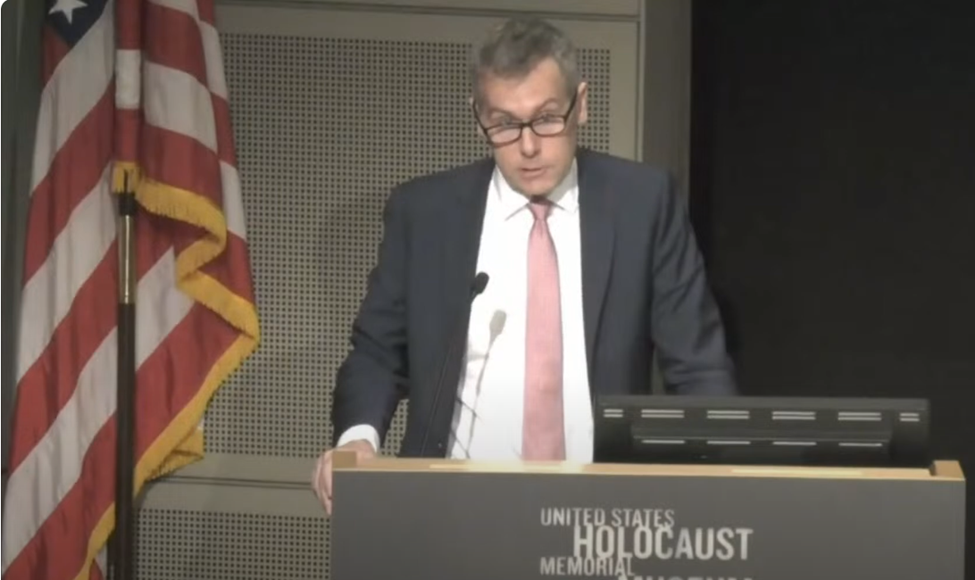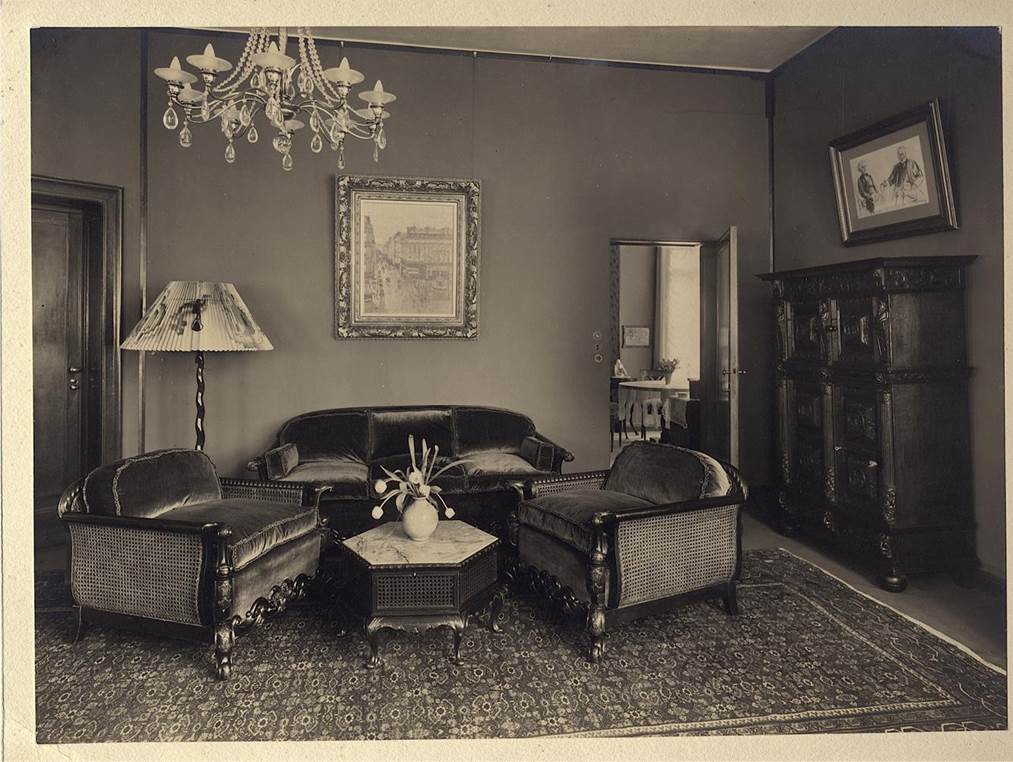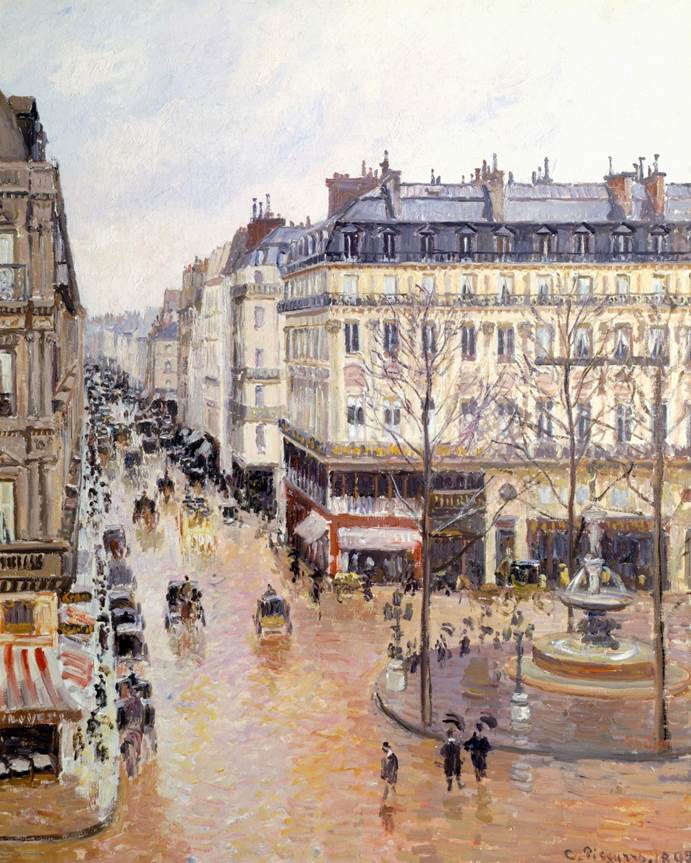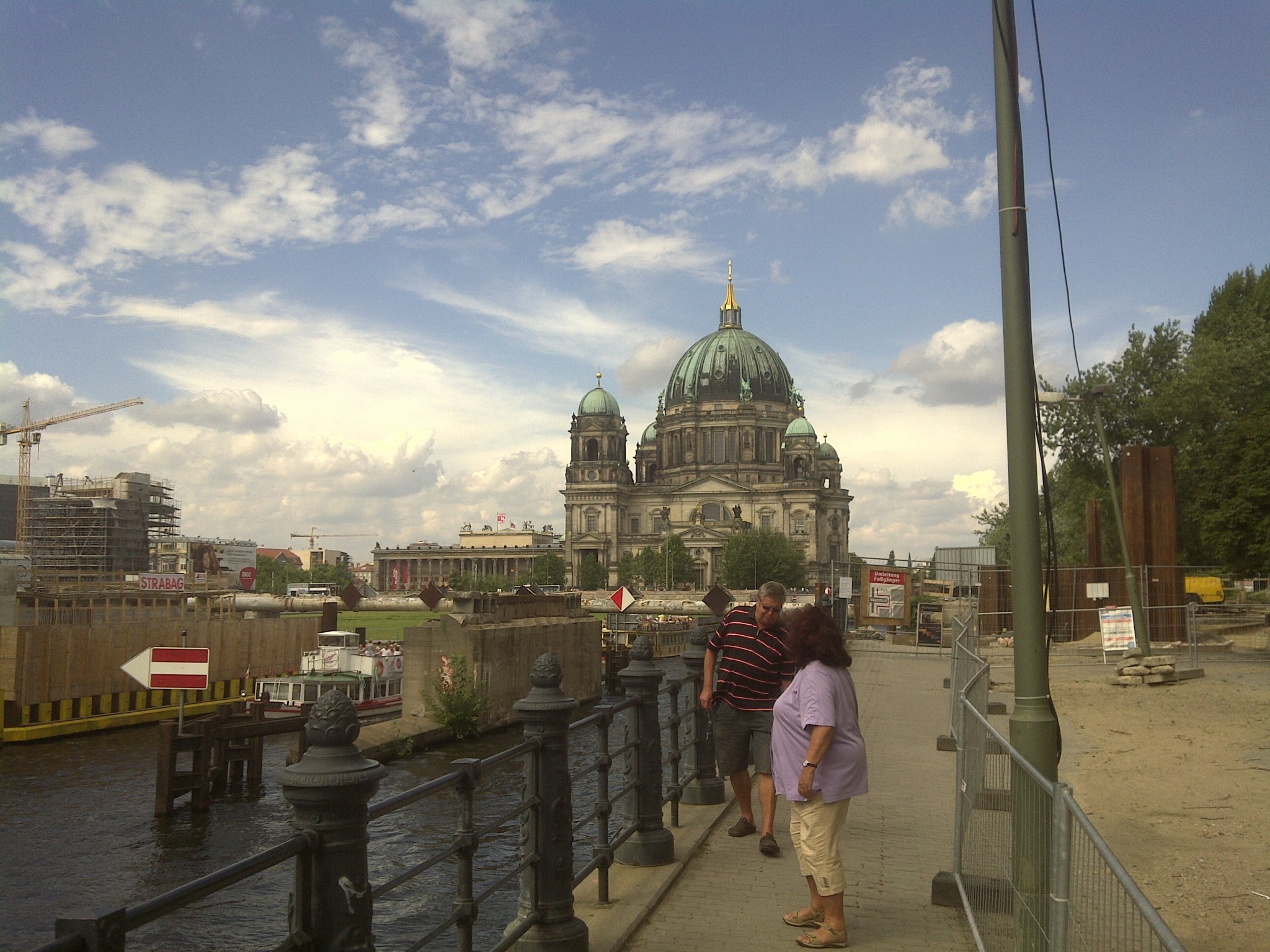I was honored to be among the speakers this week at the United States Holocaust Memorial Museum on March 5, 2024. Convened by the World Jewish Restitution Organization and the U.S. State Department, the event announced the Best Practices for the Washington Conference Principles on Nazi-Confiscated Art (available here), and a report (available here) by the WJRO on the status of restitution progress worldwide. The Best Practices were a collaboration by the network of Special Envoys on Holocaust issues, in recognition of the 25th anniversary of the Washington Conference Principles on Nazi-Confiscated Art in 1998.
Best Practices for Nazi-Era Art Presented at Special Event in Washington
Topics: Washington Principles on Nazi-Confiscated Art, 1998 Washington Conference on Holocaust-Era Assets, WJRO, State Department, Leiden University, Stuart Eizenstat, Claims Conference, Antony J. Blinken, Gideon Taylor, Colette Avital, Michael Herzog, Ellen Germain, Dr. Wesley Fisher, Dr. Ruth J. Weinberger, Prof. Dr. Meike Hopp, Technische Universität Berlin, Lord Eric Pickles, Prof. Leora Bilsky, Tel Aviv University, Dr. Evelien Campfens
Thyssen-Bornemisza wins Pissarro painting sold under Nazi duress by Lilly Cassirer
The U.S. Court of Appeals for the 9th Circuit ruled on January 9, 2024 that the Thyssen-Bornemisza Collection Foundation in Madrid is the owner of Rue Saint–Honoré, après-midi, effect de pluie (1892) by Camille Pissarro, a painting sold by German Jew Lilly Cassirer under Nazi duress. After the Cassirer family prevailed in the Supreme Court in 2023 that the 9th Circuit had previously applied the wrong legal test, the question before the 9th Circuit was the choice of which law to apply. In any case where the parties and subject matter are in different jurisdictions (or within overlapping jurisdictions like state and federal), a court must first decide which body of law to apply in analyzing a particular case. Here, the 9th Circuit ruled that Spanish law applied because Spanish law would be harmed more than California law if the other body of law applied (known as comparative impairment analysis). This, in turn, led to the holding that the Thyssen-Bornemisza Collection Foundation acquired good title after holding the painting for long enough that prior claims were extinguished.
The decision is thinly-reasoned. It looks to the “place of relevant conduct” as paramount to choosing applicable law, but concluded that the only relevant conduct was Spain’s purchase in 1993 of the Baron Hans Heinrich Thyssen-Bornemisza’s collection. Not the Baron’s Swiss residence, not his purchase of a stolen painting in New York (not located in Spain when last we checked) in 1976, not the earlier (New York) sale by Knoedler Gallery, nor the painting’s passage through California in the 1950s, nor the source of the defect in the first place: Nazi Germany. Rather, The court insultingly referred to Holocaust survivor and refugee Claude Cassirer’s life in California as a “fortuity.” As the late Justice Antonin Scalia might have said, “pure applesauce.”
The upshot is that a state (Spain, through the TBC) that did not acquire good title to a painting that was indisputably dispossessed by the Nazis will (barring further review) keep this ill-gotten property. Spain should have returned the painting the first time it was asked to do so. Digging its heels in over 18 years of litigation is a mockery of the commitments Spain made in the 1998 Washington Principles on Nazi-Confiscated Art. Nothing about Spanish law is impaired by refusing to honor a transaction at the direction of the Nazis.
The family has vowed to fight on, and good for them. As I often tell people as an example to frame this issue and this case, the picture below is of the painting in Lilly’s home. Now imagine that this was your home, and the very worst person you knew came in and demanded it because he knew you had no power to resist. Would you give up?
Topics: Lilly Cassirer, Rue Saint-Honoré après-midi effet de pluie, Claude Cassirer, Foreign Sovereign Immunities Act, California, Washington Principles on Nazi-Confiscated Art, Spain, FSIA, Camille Pissarro, Ninth Circuit Court of Appeals, Cassirer v. Thyssen-Bornemisza Collection, Jakob Scheidwimmer, Sydney Schoenberg, Eugen Kampf, Antonin Scalia, Hans W. Lange, Federal Republic of Germany v. Philipp, Philipp v. Stiftung Preussischer Kulturbesitz, Simon v. Republic of Hungary, choice of law, Baron Thyssen-Bornemisza
New Law Requires Museums in New York to Display Information About Nazi Art Looting, May be More Complicated than it Looks
New York Governor Kathy Hochul has signed into law a new requirement requiring museums to indicate publicly any object in their collection that was displaced by the Nazis as part of what Congress has rightly called the largest organized theft of art in human history. The significance of this new rule is clear: New York is the center of the art world, and its museums hold a unique place of prominence. As readers of this blog or of my book A Tragic Fate-Law and Ethics in the Battle Over Nazi-Looted Art know, my view has long been that American museums vary widely in their candor and proactive approach to the issue of Nazi-looted art in their collections. Many have shown admirable initiative in probing their collections, while others have shown a regrettable passivity in waiting to receive and then deflect claims. Whether this bill will move the needle on that balance is the question. Transparency and disclosure have been the defining goals of the modern restitution era. This new law serves many of those ideals, but some unintended consequences may follow.
Topics: Metropolitan Museum of Art, American Alliance of Museums, Nazi-looted art, Foreign Sovereign Immunities Act, Washington Conference on Holocaust Era Assets, Supreme Court, Washington Principles on Nazi-Confiscated Art, AAM, Museum of Modern Art, Nuremberg race laws, Washington Conference Principles on Nazi-Stolen Ar, Association of Art Museum Directors, Washington Department of Labor and Industries, Solomon R. Guggenheim Museum, Museum of Fine Arts Boston, AAMD, Military Government Law 59, State Department, Holocaust Expropriated Art Recovery Act, HEAR Act, A Tragic Fate, Law and Ethics in the Battle Over Nazi-Looted Art, Governor Kathy Hochul, Reich Citizenship Law, Animal House, Kevin Bacon
“Moralistic Preening” and Broken Commitments Under the Washington Principles—Ninth Circuit Chastises Spain for Keeping Nazi-looted Pissarro but Rules Painting Will not Return to Cassirer Family
The U.S. Court of Appeals for the Ninth Circuit yesterday affirmed the 2019 judgment that allowed the Thyssen-Bornemisza Collection Museum in Madrid to retain Camille Pissarro’s Rue St. Honoré, après-midi, effet de pluie (Rue St. Honoré, Afternoon, Rain Effect) (1892), a painting sold under duress by Lilly Cassirer to a Nazi in 1939. Absent rehearing by the full Ninth Circuit or Supreme Court review, the decision may bring to an end the Cassirers decades-old effort to win restitution of a painting that no one disputes is Nazi-looted art, yet the museum refuses to return. The result turns on the highly deferential standard of review for findings of fact by the trial court about the state of knowledge by Baron Hans-Heinrich Thyssen-Bornemisza when he acquired the painting in 1976. Yet the Ninth Circuit’s lack of enthusiasm for this result fairly leaps off the page, however, first with its decision to issue an unsigned opinion not for publication, and by seconding the District Court’s disappointment in the ruling under review “that Spain and TBC’s refusal to return the Painting to the Cassirers is inconsistent with Spain’s moral commitments under the Washington Principles [on Nazi-Confiscated Art] and Terezin Declaration.” The Court of Appeals’ statement about Spain and the museum that “It is perhaps unfortunate that a country and a government can preen as moralistic in its declarations, yet not be bound by those declarations” is a reminder of the limitations of these moral imperatives that, ironically, many current possessors argue are sufficient to address the problem of Nazi-looted art. It is absolutely true that moral principles often do not have the force of law. It is equally true, however, that flouting moral principles warrants moral sanction. And as multiple judges of the United States have found, Spain deserves just that.
Topics: Terezin Declaration, Thyssen-Bornemisza Collection, Rue St. Honoré après-midi êffet de pluie, Claude Cassirer, Cassirer, Foreign Sovereign Immunities Act, Washington Principles on Nazi-Confiscated Art, Stiftung Preussischer Kulturbesitz, FSIA, expropriation exception”, Baron Hans-Heinrich Thyssen- Bornemisza, Welfenschatz, A Tragic Fate, Reichskammer der bildenden Künste, Jakob Scheidwimmer, Reich Chamber of the Visual Arts, Madrid
Germany and its Federal States Announce Collective Declaration with Respect to Colonial Artifacts and Human Remains
Debate has peaked in the last year or so about the treatment and possible restitution of so-called colonial artifacts in Western (i.e., European and North American) museums. The conversation is important for many reasons, but one interesting facet is the way in which the discussion moved from a peripheral topic to one consuming high-level government attention in a very short amount of time. In the process, institutions that have been devoted for well over a century to artistic, archeologic, and ethnographic displays have found themselves in a very public conversation about the future and even the validity of their mission. This discourse culminated last fall in a report commissioned by President Emmanuel Macron, authored by Bénédicte Savoy of France and Felwine Sarr of Senegal, recommending (among other things, as discussed below), that objects sent to France should be returned if the country of origin requests it. Germany has now joined the conversation with the announcement of a collective declaration addressed to the collection of German federal and state museums.
Topics: Berlin, ICOM, Deutsches Zentrum Kulturgutverluste, Germany, Washington Principles on Nazi-Confiscated Art, SPK, Stiftung Preussischer Kulturbesitz, International Council of Museums, 1970 UNESCO Convention, Monika Grütters, Art Law Report, Capital Requirements Regulation, Bénédicte Savoy, Felwine Sarr, Emmanuel Macron, Humboldt Forum, Unter den Linden, Stadtschloss, Frederick the Great, East Germany, Volkskammer, Collective Declaration, Dahlem, Nama, Namibia, Federal Ministry of Culture, Media, and Sport, Länder, German South West Africa, Deutsches Zentrum Kulturverluste, Ethnological Museum, Gemäldegalerie, Staatliche Museen zu Berlin, Herero
When Will We Get There? The World Gathers in London to Consider the State of Restitution of Nazi-Looted Art.
The National Gallery London hosted on September 12, 2017 the much-anticipated conference “70 Years and Counting: the Final Opportunity?” organized by the United Kingdom Department for Digital, Culture Media & Sport (DCCS), and the Commission for Looted Art in Europe (CLAE). Delegates from numerous countries gathered to consider the state of progress on the efforts to identify and return works of art lost during the Nazi era. While the event had a truly international flair, the discussion centered primarily on the five countries that have created some sort of process to consider assertions of looted art in response to the Washington Principles on Nazi-Confiscated Art: England, France, Austria, the Netherlands, and Germany.
Topics: Victoria and Albert Museum, Kunstrückgabebeirat, Zentralinstitut für Kunstgeschichte, National Gallery London, Constantine Cannon LLP, Commission for Looted Art in Europe, Washington Principles on Nazi-Confiscated Art, Christie's, Advisory Commission, Johannes Nathan, Monica Dugot, Imke Gielen, Sotheby's, Neumeister Auction House, Richard Aronowitz-Mercer, Tony Baumgartner, Clyde & Co., John Glen, UK Spoliation Advisory Panel, The Orpheus Clock, Art Restitution Advisory Board, Margreet Soeting, H. Blairman & Sons Ltd., Katrin Stoll, Department for Digital Culture Media & Sport, DCCS, CLAE, 70 Years and Counting: the Final Opportunity?, Gabriele Finaldi, David Lewis, Minister for the Arts Heritage and Tourism, Sir Paul Jenkins, Dr. Antonia Boström, von Trott zu Solz Lammek, Simon Goodman, Sir Donnell Deeny, Jan Bank, Restitutions Committee of the Netherlands, Dr. Reinhard Binder-Krieglstein, Professor Dr. Reinhard Rürup, Jean-Pierre Bady, Commission pour l’indemnisation des victimes, CVIS, Dr. Christian Fuhrmeister, British Library, Nathan Fine Art, Stedelijk Museum, Pierre Valentine, Martin Levy
U.S. Museums and Looted Art—Is it Whether you Win or How you Play?
A recent report by the World Jewish Restitution Organization (WJRO) has made strong criticisms of American museums with respect to their handling of Nazi-looted art claims. In particular, the report criticizes the assertion of timeliness defenses such as statutes of limitations. The report focuses in particular on cases involving the Museum of Fine Arts, Boston, the Norton Simon Museum in Pasadena, the Toledo Museum of Art, and the Fred Jones, Jr. Museum at the University of Oklahoma. There is no state control over the vast proportion of art in America the way there is in most European countries, and thus, no possibility of singular, nationalized approaches. In response to the report, some of the museums mentioned have defended their strategies, though in some cases the players are talking past each other. What is undeniable is that whether as a function of the nature of U.S. museums (largely private, rather than public), it is hard to say there is a coordinated approach to the issue, good or bad. The report is lengthy and detailed, and well worth a read in depth that space here does not permit. In some ways, the question it poses boils down to this: is determining the historical truth the obligation of everyone involved or is there some room to prevail without addressing the larger issues?
Topics: Toledo Museum of Art, Street Scene in Tahiti, Léone Meyer’s, American Association of Museums, Two Nudes, La bérgère, AAMD Task Force on the Spoliation of Art during th, Thyssen-Bornemisza Collection, Rue St. Honoré après-midi êffet de pluie, University of Oklahoma, Cassirer, Nazi-looted art, Washington Conference on Holocaust Era Assets, Fred Jones Jr. Museum, Washington Principles on Nazi-Confiscated Art, World Jewish Restitution Organization, WJRO, Association of Art Museum Directors, Restitution, American Alliance of Museums AAM, World War II, Paul Gaugin, Camille Pissarro, Oskar Kokoschka, Museums, Museum of Fine Arts Boston, AAMD, Norton Simon Museum in Pasadena








